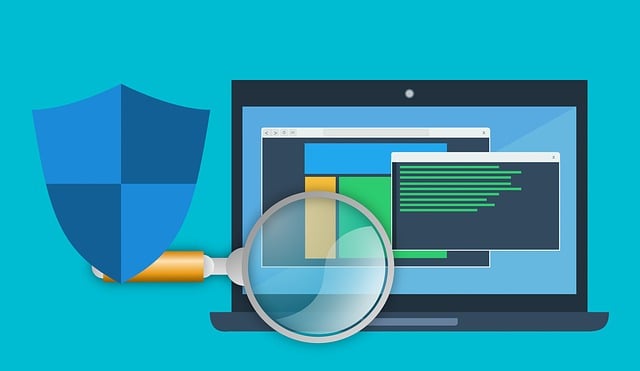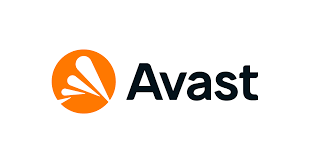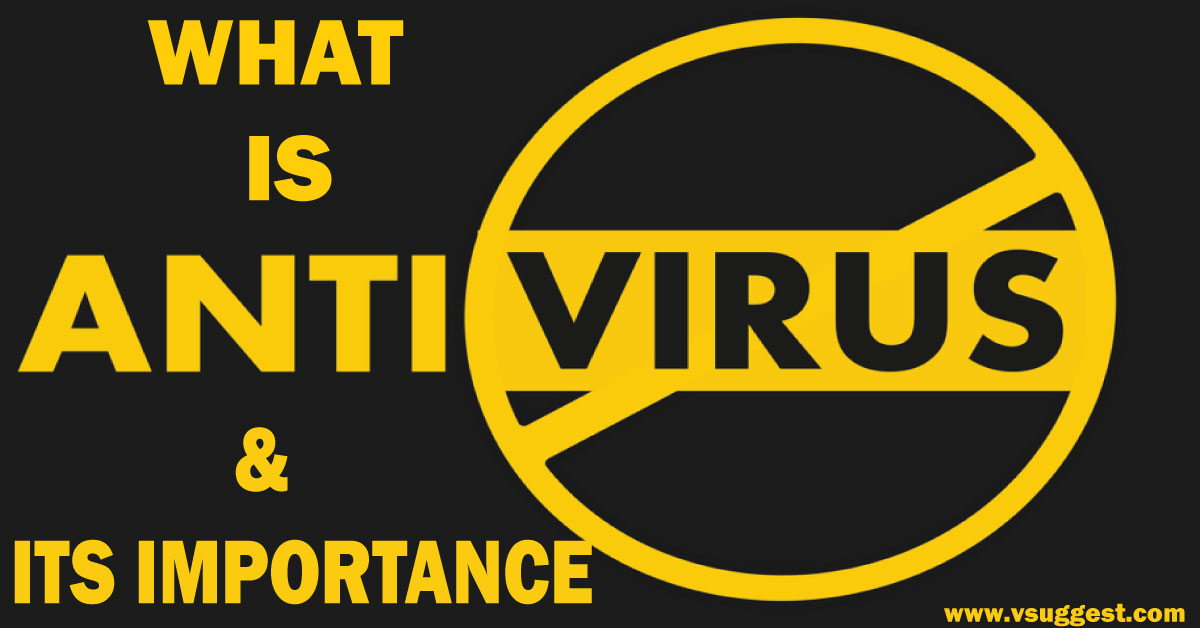In today’s digital age, cybersecurity has become a top concern for businesses, individuals, and even governments. With our growing reliance on computers and the internet, the risk of cyber threats and malware continues to rise. One of the most effective ways to defend against these risks is by using the best antivirus software available. These programs are specifically designed to detect, block, and eliminate malicious software that could harm computer systems, compromise sensitive data, or exploit security vulnerabilities.
This article will give an in-depth look at antivirus software, its operation in the first place, its significance, its kinds of features, as well as the top antivirus software programs currently available.
It is a specially designed program that can detect and eliminate diverse forms of malware generally referred to in the field of malware. Malware comprises worms, viruses, Trojan horses, ransomware spyware, adware, and a variety of other harmful software that could cause serious harm to your computer or network.
The main purpose of an antivirus is to identify and scan the presence of malware, quarantine it, and eliminate it. To accomplish this, antivirus software employs different methods like the use of signatures-based analysis, heuristic analyses, behavioral-based detection, and artificial intelligence (AI) to identify suspicious behavior and neutralize threats before they cause harm.
Importance of Antivirus Software in 2025
The importance of antivirus software cannot be overstated. Here are some key reasons why it is essential:
- Protect Against Malware: Antivirus software shields computers and networks from malware that could cause damage to files, steal sensitive data, or damage the systems.
- Data Security: Cybercriminals frequently use malware to gain access to personal and financial information. Antivirus software can prevent unauthorized access to data and theft of information.
- Secure Online Transactions: Many cyber-attacks attack online banking and shopping platforms. Antivirus software protects transactions by blocking fraudulent and phishing websites.
- Systems Performance Optimization: Some antivirus programs also provide tools to clear unneeded files, eliminate unwanted programs, and boost the performance of the system.
- Preventing Unauthorized Access: Antivirus software can detect and block attempts to hack to ensure that hackers cannot gain access to sensitive systems.
How does the best antivirus software work in 2025?
Antivirus software employs multiple methods to identify and eliminate threats. Here are some key techniques:
- Signature-Based Detection
- This technique relies on a database of signatures of viruses (unique designs of harmful code). The antivirus examines files and compares them with the signatures to find out if there is any malware.
- While it’s effective against known threats, it might not be able to detect new or undiscovered viruses.
- Heuristic Analysis
- This technique assists in identifying unknown viruses that are not yet known by studying the characteristics and behavior of the files.
- If a file shows suspicious behavior, for example, altering system settings or reproducing itself, it’s considered a risk.
- Behavior-Based Detection
- This method is not a scanning technique, but rather this technique examines the performance of software in real-time.
- If a program acts in a way that is malicious (e.g. attempts to encode files, such as ransomware) the antivirus will block it right away.
- Cloud-Based Detection
- Certain modern antivirus programs rely on cloud computing for analyzing documents in real time.
- This decreases the amount of system resources used and allows for faster updates of virus definitions.
- Machine Learning and AI
- Advanced antivirus software employs AI (artificial intelligence) as well as machine learning to forecast and detect new threats by studying patterns and behavior.
Types of Antivirus Software
Various types of antivirus software are designed to meet various requirements. Some of the most well-known kinds include:
1. Standalone Antivirus Software
Standalone antivirus software offers basic security by detecting and eliminating viruses, worms, and Trojans. It is based on signatures, which means that it compares the files that are on your computer to the database of malware that is known to be infected.
2. Internet Security Suites
Internet security software goes beyond the basic antivirus capabilities. They combine security features such as firewall, antivirus, anti-phishing, and parental control options to offer complete security against cyber-attacks.
3. Cloud-Based Antivirus Software
Cloud-based antivirus software relies on cloud resources to detect and evaluate threats. Instead of downloading massive Signature databases, it utilizes cloud servers to scan the internet, which makes it lighter and speedier.
4. Free Antivirus Software
Free antivirus products are usually basic offerings from large software companies. They offer basic malware protection however, they might not include features in the premium versions.
5. Paid or Premium Antivirus Software
Paid antivirus programs offer additional features that go beyond the free version. They typically come with advanced detection algorithms, support for customers, and additional features like encryption of data.
6. Behaviour-Based Antivirus Software
This type of software is focused on the behavior of software, rather than signature-based detection. It detects abnormal behavior in programs and flags any potential threats regardless of whether the threat itself is not well-known.
7. Mobile Antivirus Software
With the increasing popularity of smartphones, safeguarding mobile devices is now equally important. Antivirus software for mobile devices is created to protect smartphones and tablets.
8. Endpoint Security Software
Endpoint security focuses on securing the network’s devices, which include servers, computers, and mobile phones, from cyber threats.
9. Specialized Antivirus Software
Antivirus programs are specifically designed to defend against a specific kind of threat, for example, spyware or ransomware.
10. Gaming Antivirus Software
Gaming antivirus has been optimized so that gamers can play their games without interruptions or performance drops.
11. Enterprise-Level Antivirus Software
Created for large companies, Enterprise antivirus solutions provide solid protection across a variety of systems and devices.

Key Factors to Consider When Choosing the Best Antivirus
Modern antivirus programs come with various features to provide enhanced security. Some essential features include:
1. Comprehensive Malware Detection and Removal
The main purpose of antivirus programs is to identify and eliminate malware threats. An effective antivirus must provide solid protection against different types of malware, which include:
- Viral infections: Programs that replicate themselves and infect files and systems.
- Trojan: malicious software is disguised as legitimate software.
- Ransomware: Programmes that encrypt your data and demand payment to secure its release.
- Spyware: Spyware is software that stealthily takes your data.
Examine independent test results from AV-Test or AV-Comparatives for a thorough evaluation of the program’s detection rate. Find antivirus software that has excellent scores in the protection against malware and false positives and tests for system impact.
2. Real-Time Protection
Real-time security is an essential characteristic of modern antivirus programs. It constantly examines the device’s activity for any suspicious actions and ensures that threats are detected and remediated before they cause harm. Antivirus applications that have real-time scanning offer proactive protection against new threats instead of relying on scheduled scans.
3. System Performance Impact
Security is important, but antivirus programs must not affect the performance of your device. Certain antivirus applications consume a lot of resources and cause your system to slow down, particularly during scans or updates. Think about lightweight antivirus options that offer solid protection without affecting the speed of your system. Performance benchmarks from independent sources will help you determine the best antivirus software that has little impact on your device.
4. Compatibility with Your Device as well as Operating System
Not all antivirus software is compatible with all operating systems. Before you purchase software, make sure that it is compatible with your device that runs in Windows, macOS, Android, and iOS. Also, think about cross-platform solutions for multiple devices that you want to safeguard. A lot of antivirus providers provide packages that allow you to cover all your devices in one subscription.
5. User-Friendly Interface
A user-friendly interface is essential, particularly for those who aren’t technologically adept. Make sure you choose an antivirus that provides:
- Installation and setup are simple.
- A clear navigation system and labels for attributes.
- Updates and automated scanning.
An intuitive interface cuts down the learning curve and ensures that the most important features are available and user-friendly.
6. Features and Functionalities
Modern antivirus solutions go above and beyond the basic protection against malware by providing an array of additional security tools. When looking at antivirus software, be aware of these features:
- Firewall: Provides an additional layer of protection by analyzing both outgoing and inbound network traffic.
- VPN (Virtual Private Network): Protects your privacy online and secures your connection to the internet.
- Parental Controls: Controls and blocks inappropriate content for children.
- Password Manager: Securely store, manage, and organize your passwords.
- Data Shredder: This tool ensures the permanent removal of sensitive files.
These features may enhance your security overall, you should prioritize those features that will be most useful to your requirements.
7. Frequency and Convenience of Updates
Cyber-attacks are constantly changing, making regular updates essential to antivirus software. An effective antivirus program must:
- Regularly update the virus definitions to deal with new dangers.
- Provide automatic updates to ensure your software remains up-to-date.
If you don’t update your software regularly, the most effective antivirus may fail to protect against new threats.
8. Customer Support
The support of a reliable customer is vital should you experience technical difficulties or require assistance in using an antivirus application. Find out if the antivirus vendor provides multiple support channels like:
- 24/7 live chat or telephone assistance.
- Support via email and prompt response time.
- A vast knowledge base and community-based forum.
Effective customer support means that you can resolve issues promptly and continue uninterrupted security.
9. Pricing and Subscription Plans
Antivirus software is available in a variety of pricing tiers, which include paid, free premium, and paid plans. While free versions might offer basic security, they usually do not have the most advanced features or robust capability to detect malware. Paid versions typically offer comprehensive security, which includes premium features such as VPNs as well as firewalls. Compare plans of subscription to discover the one that gives you the most value for money.
10. Reputation and Reviews
Before making a final choice, look into the credibility of your antivirus company. Check for feedback and opinions from reputable sources in addition to customer feedback. A trusted company with a good reputation and positive reviews will be more likely to provide solid protection and top-quality customer service.
11. Privacy and Data Security
Because antivirus software typically can access sensitive information and system files, It is crucial to choose a vendor with strict privacy policies. Make sure that the program does not gather unnecessary personal information or share data with third-party companies.
Top 5 Antivirus Software in 2025
There are many antivirus programs available in the market, each offering various features. Here are the top 5 antivirus Software in 2025:
1) Total AV:

Total AV is a powerful and user-friendly antivirus application created to provide complete protection for your device. It is a highly effective protection against malware, viruses, ransomware, scams involving phishing, and other threats on the internet. With real-time scanning and smart security measures, Total AV makes sure that your PC, smartphone, tablet, or computer remains safe from cyberattacks.
One of the most notable features of Total AV is its simple interface, which makes it easy for people of different levels to use and control the security options. Additionally, it comes with an extension for safe browsing, which blocks malicious websites and blocks the tracking of your web activity, improving your privacy online.
Total AV includes tools to optimize your system, like junk file cleanup and startup manager, that help to improve the performance of the device. Furthermore, the integrated VPN (Virtual Private Network) lets users surf the web securely and without revealing their identity.
With several price plans and a no-cost version with the most essential functions, TotalAV is a cost-effective solution for both businesses and individuals alike. Its frequent updates and 24-hour support for customers ensure they receive the latest security improvements.
All in all, Total AV is a reliable and affordable antivirus software that offers powerful security features with powerful system optimization tools which makes it an excellent option for those looking to secure their digital lives.
2) Norton:

Norton Antivirus is a trusted and extremely effective cybersecurity tool that is designed to safeguard your devices from malware, viruses, ransomware, and cyber-attacks. Created by NortonLifeLock, it provides sophisticated security features, such as security for firewalls, real-time threat identification, and AI-powered security to protect your personal and corporate data.
One of Norton’s strengths is its multi-layered security that includes anti-phishing technology to prevent malicious websites from being blocked and identity theft protection that protects sensitive data. The program also has an encrypted VPN, which ensures secure browsing by encrypting your connection to the internet.
Norton offers cloud-based backup storage that protects important files from losing data because of ransomware attacks. In addition, the password manager allows users to create strong passwords and safely store them. The program is accessible across different platforms, which include Windows, macOS, Android, and iOS, and offers seamless protection across platforms.
With a variety of pricing plans, including Norton 360, which combines antivirus protection and additional security features, Norton caters to different security requirements. Regular updates to software protect users from changing cyber threats. Additionally, 24/7 customer support is available in case of need.
In the end, Norton Antivirus is a solid and complete security tool which makes it a great option for businesses and individuals looking for a robust security solution.
3) PC Protect:

PC Protect is a powerful antivirus program designed to protect your devices from ransomware, malware, viruses, and other cyber threats. Through advanced security features such as real-time scanning, threat identification, and more. It will ensure that your smartphone, computer, or tablet is safe when you browse or download files or even do your work online.
One of PC Protect’s most notable characteristics is its user-friendly interface that is easy to use for novices and experienced users alike. It comes with an intelligent firewall that provides an additional layer of protection by analyzing incoming and outgoing traffic, which can prevent unauthorized access to your information.
Alongside antivirus security, PC Protect offers system optimization tools to improve the performance of your device. They include junk file removal, startup manager, and browser cleanup tools to increase performance and speed. The program also has the security of a VPN that lets users surf the internet in complete anonymity and security while safeguarding their privacy from tracking and hackers.
PC Protect is compatible with Windows, macOS, Android, as iOS devices and offers all-device protection under one subscription. With a low-cost pricing plan and 24-hour customer support, PC Protect is an affordable security solution for both businesses and individuals alike.
In the end, PC Protect is a robust and reliable antivirus program providing solid security and privacy, along with performance enhancements for all of your devices.
4) Avast:

Avast is a well-known antivirus software that offers powerful protection against malware, viruses, ransomware, and phishing threats. Real-time security detection, AI, and threat analysis it guarantee safe downloading, browsing, as online transactions.
Avast provides features such as security-minded firewalls, Wi-Fi security scanners, and the ability to use a VPN to allow private browsing. The user-friendly interface makes it available to all users. Additionally, it is compatible with multiple devices, such as Windows, macOS, Android, and iOS.
With premium and free plan options, Avast delivers reliable cybersecurity solutions that meet your specific needs. Regular updates and 24-hour support for customers make it a dependable option for security in the digital age.
5) AVG:

AVG Antivirus is a trusted security program that shields your devices from malware, viruses, ransomware, and phishing attacks. Through real-time detection of threats and the use of AI to protect you, it provides safe browsing, downloading, and online transactions.
AVG provides essential features such as a powerful firewall and email security and a performance booster to ensure your system runs efficiently. It is compatible with multiple platforms, such as Windows, macOS, and Android, offering complete security.
With premium and free versions, AVG caters to various security requirements. Regular updates, a simple interface, and 24-hour customer service make it a trusted
Conclusion
In today’s digital world, Antivirus software is a vital instrument to protect mobile and desktop computers and networks from threats. As cybercriminals continue to develop new methods to exploit security weaknesses using reliable antivirus software is vital to protecting personal and business information.
Selecting the right antivirus is contingent on the individual’s needs, regardless of whether it’s basic Internet security, basic protection, or enterprise-level security. Updates regularly, live scans, and other security features like security for ransomware and firewalls are crucial considerations when choosing antivirus software.
In the end, although antivirus software plays an important part in cybersecurity, users should also adhere to proper security practices that include avoiding links that look suspicious, using secure passwords, and keeping their
